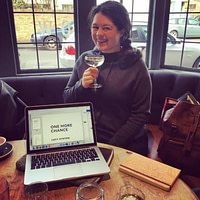This book came to me by a trade. I traded Stoney the Road, about black reaction to Reconstruction , and its aftermath, in which my son-in-law had an interest, for a book he was reading that I thought was Jerusalem. But the book he was reading turned out to be Jesus: a Pilgrimage, by James Martin, SJ, a Jesuit priest. Nonetheless, it turned out to be a fair trade, because I enjoyed Jesus: A Pilgrimage. It was also a New York Times bestseller and Christopher Award Winner.
Father James Martin is a prolific writer having authored thirteen books. He is also editor-at-large of the Jesuit magazine, America. He was born in 1960 and grew up in Plymouth Meeting, Pennsylvania, United States (near where I grew up). He graduated from the University of Pennsylvania’s Wharton School of Business in 1982 and worked in corporate finance at General Electric for six years.
Dissatisfied with the corporate world, he became more deeply involved in the Catholic Church and decided to enter the Society of Jesus (more commonly known as the Jesuits) in 1988. During his studies to become a Jesuit priest, he earned a M.A. in philosophy from Loyola University Chicago in 1994, an M.Div. from the Weston Jesuit School of Theology in 1998, and a Th.M., also from the Weston School, in 1999. He was ordained a priest in 1999.
Father James Martin
In Jesus: A Pilgrimage, Father James describes a pilgrimage he made to the Holy Land to view the many historic places associated with Jesus in Jerusalem and vicinity and in Galilee. He describes the site, his reaction to it, reveals what other religious writers have said about it. He includes the New Testament verses that relate to the events that are though to have taken place there, and he offers theological commentary on the significance of the events.
But this book is not a heavy theological tome, because Father James also covers the joys and difficulties of journeying through the Holy Land. His touch is light, his prose in simple; the journey is spiritual, but also light-hearted.
I found nothing to criticize in this book. At 465 pages, it was lengthy, but it progressed naturally from site to site, following Jesus’ time line. To have abbreviated it, would necessarily have made it more superficial or more theological.
The book was particularly interesting for me as my wife and I toured Israel several years ago and visited many of the sites mentioned. Since our interests were secular as well as religious (we wanted to learn more about Christianity, Judaism and Islam), we missed some of the iconic places mentioned. It was good to draw a mental and spiritual picture of them.
Those of you who have read my books know that I am a committed Christian. I was entirely comfortable with nearly everything Father James said; his spiritual beliefs tended to confirm my own. But what advice can I give to those potential readers who consider themselves adherent of other faiths, or agnostics, or atheist? My view is that Jewish and Muslim readers, who may have some curiosity about Christianity, would find the book interesting in that it clearly defines what Christianity is about, without any reference to other religions. Agnostics may struggle with the intensity of the evidence that Father James presents. It is difficult to be ambivalent about it. Atheists will almost certainly put the book aside after reading, at most, the first four pages, and declare: “this book isn’t for me.”



